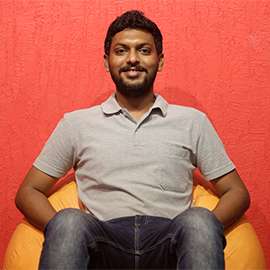
The holy month of Ramzan when followers of Islam fast from dawn to dusk in an attempt to atone for their sins, is supposed to be a month of peace and love.
Unfortunately, during this holy month - which culminated in Eid-ul-Fitr on 6-7 July - the world witnessed hundreds of attacks that claimed the lives of over 2,362 people (approximately).
These attacks are often disguised in the false garb of religious fundamentalism and so-called religious cleansing, something the Islamic State and other extremist groups use to justify the bloodbaths they so often unleash on unsuspecting civilians.
Before Ramzan 2016 began, the BBC quoted Islamic State spokesman Abu Muhammed al-Adnani as telling sympathisers around the world to make the holy month one of calamity instead. "Get prepared, be ready to make it a month of calamity everywhere for the non-believers... especially for the fighters and supporters of the caliphate in Europe and America," he said.
It appears as though many have taken his words to heart. This year, the usually joyful celebrations that mark Eid-ul-Fitr come with a heavy pall of gloom. Countless families around the world are mourning the loss of their near and dear ones, who were claimed by those who pretend to be warriors of religion.
What we are left with, is one of the bloodiest Ramzans in recorded history. Here are just a few of the countless acts of terror between 5 June to 6 July.
- On 12 June, Omar Mateen, a 29-year-old American security guard, killed 49 people and wounded 53 others inside Pulse - a gay nightclub in Orlando, United States. Mateen swore loyalty to the leader of the Islamic State, Abu Bakr al-Baghdadi.
- At least 42 people, mostly soldiers and one child, were killed when four suicide car bombings hit security targets in Yemen on 28 June.
- Even as the world was reeling from the Yemen attack, extremists struck again, attacking Istanbul's Ataturk airport and killing at least 41 that very day.
- On 1 July, the Islamic State claimed responsibility for the attack in Bangaldesh's capital Dhaka where gunmen killed 20 hostages and two police officers. The attackers killed all the non-Muslims as well as the Muslims who refused to accept their demand to recite verses from the Quran.
- On the evening of 2 July, Baghdad was ripped apart by what is being called the deadliest suicide attack in Iraq since the invasion. Over 250 people were reportedly killed and just as many injured when a truck laden with bombs detonated in a shopping centre in the Karradain area. The Islamic State claimed responsibility for the attack.
- Saudi Arabia was rocked by a series of coordinated suicide blasts within 24 hours on 4 July. Four people and others were killed in the three attacks, which took place near one of Islam's holiest sites, outside a Shiite mosque and a US Consulate, respectively.
Is peace an alien concept to the self-proclaimed defenders of religion?
The Islamic State, the biggest terrorist group in the world, claims to be the protector of Islam.
However, the activities of the terror outfit - and others like the Boko Haram and al-Qaeda to name a few - have proved that these extremists never fail to interpret religious teachings for their own benefit. If there is one thing that the IS, the Boko Haram and other groups have in common, it is the fact that their own agenda to terrorise the world and grab headlines seems to always trump their so-called allegiance to religion.
First published: 6 July 2016, 5:14 IST







![BJP's Kapil Mishra recreates Shankar Mahadevan’s ‘Breathless’ song to highlight Delhi pollution [WATCH] BJP's Kapil Mishra recreates Shankar Mahadevan’s ‘Breathless’ song to highlight Delhi pollution [WATCH]](https://images.catchnews.com/upload/2022/11/03/kapil-mishra_240884_300x172.png)

![Anupam Kher shares pictures of his toned body on 67th birthday [MUST SEE] Anupam Kher shares pictures of his toned body on 67th birthday [MUST SEE]](https://images.catchnews.com/upload/2022/03/07/Anupam_kher_231145_300x172.jpg)






